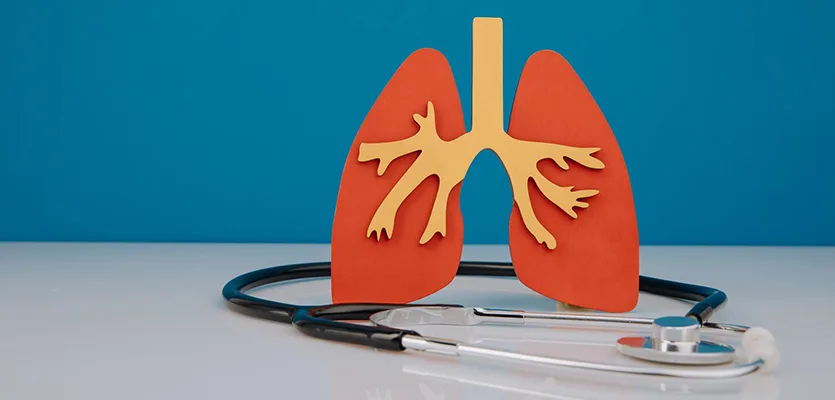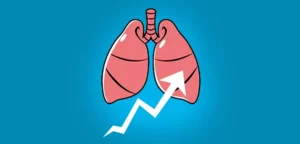A lung transplant is a lengthy process. It involves several preparatory measures, a long operation duration, and months of recovery. Each step in the procedure is a causal factor in the final results and the success and survival rates.
So, is there any estimated duration of a lung transplant?
The answer to this depends on several determining factors. This article aims to give you an idea of the possible lung transplant duration. Read on to know the determinants and the expected time for each step in the process.
What Factors Affect The Lung Transplant Duration?
A lung transplant is a serious surgical procedure. It is always the last resort in any treatment process. A doctor prescribes you a lung transplant only when your pulmonary condition has advanced to a level where conventional methods cannot treat it.
The overall lung transplant operation time is determined by a set of factors. The paragraphs below enlist the same.
1. The Lung Disease/Condition
The pulmonary condition that has put forth the need for the transplant in the first place also contributes to the expected duration of the surgery. Based on what parts of the lungs it affects and how severely it does so, your transplant team has to perform appropriately thorough testing and surgery.
Below are the most common pulmonary illnesses that call for a lung transplant:
- COPD: It is a set of diseases, including emphysema and chronic bronchitis, that block the airways, causing difficulty in breathing. In this condition, the affected parts of the bronchus also need to be operated on along with both lungs.
- Pulmonary Fibrosis: This condition leads to the scarring of the delicate lung tissues. It causes them to become stiff and thick and disrupts the proper exchange of gases. This condition can affect only one or both of the lungs.
- Cystic Fibrosis: This condition causes the buildup of thick and sticky mucus in the lungs and airways, disrupting the passage of air. It usually affects both of the lungs.
- Severe Bronchiectasis: This condition damages the airways, making it difficult for your body to clear up the mucus. It leads to breathing difficulties. In this case, both the lungs and the bronchus need attention.
2. The Progression Of The Disease/Condition
The severity and the extent of the progression of an illness determine how many or what parts of the lungs need to be transplanted. This, in turn, affects the lung transplant operation time.
A disease that has damaged only a part of the lung would take up less time. On the other hand, a severely advanced disease that has spread to both the lungs and some parts of the bronchus takes up longer.
3. The Type Of Lung Transplant Performed
There are mainly 4 types of lung transplant procedures. Each of them accounts for different lung transplant durations. The details are mentioned below.
- Single Lung Transplant: This procedure is performed when only one of your lungs is damaged. The doctor replaces them with a healthy lung from the donor and leaves your other lung untouched. This usually takes up less time.
- Double/Bilateral/Sequential Lung Transplant: This procedure involves the removal of both of your lungs as the surgeon replaces them with the healthy lungs of the donor. The process takes longer.
- Lobar/Lobular Lung Transplant: This transplant involves implanting only one or two lobes from the lungs of the donor. This takes comparatively less time than the bilateral procedure.
- Combined Lung Transplant: Here, the transplant of both lungs is paired with a heart transplant. It is a complex procedure and takes the longest.
4. Donor Availability
The number of lung donors available is very less than the number of lungs needed. So it takes months or even over a year to find a suitable donor whose blood group and other specifics are found the most compatible with your body.
- Donors for a single lung transplant are more easily available than for a bilateral transplant.
- The donors for single and bilateral transplants are deceased individuals
- The donor for a lobar transplant can be a living person who doesnt smoke and has healthy lungs; as they can still live a long and healthy life after donating a lobe, the availability is higher; in most cases, the donor is one of the recipients close ones
Read More : Lung Transplant: Type, Process And Success Ratio
How Long Does The Overall Lung Transplant Process Take?
The overall lung transplant procedure is a series of multiple steps, none of which can be skipped. Every step has an expected timeline. The details are mentioned below.
Before The Surgery
The major events that determine the lung transplant duration before the surgery include:
- The tests and diagnoses you have to go through for your overall health analysis
- Waiting for a suitable donor to come up
- The screening tests the donor has to go through
- Fulfilling the legal requirements
The Lung Transplant Operation Time
The lung transplant duration depends on the type of transplant performed. During the surgery, your chest is cut open, and the damaged lungs are removed. The surgeon then implants the donors lungs and reconnects all the blood vessels and airways. This is a crucial step and requires expertise, precision, and the surgeons full attention. Hence, it also takes a considerable amount of time.
The lung transplant operation time for a single lung transplant is usually between 4 to 6 hours, while that for a bilateral lung transplant is about 8 to 12 hours. A combined transplant procedure might take even longer.
After The Transplant
After the transplant, you will be in the ICU under the doctors constant supervision for a few weeks.
The full recovery after the transplant usually takes 3 to 5 months. Even after that, you will need to take several precautions and introduce healthy changes to your lifestyle.
The Bottom Line
It takes a long time to go through all the steps of a lung transplant. However, these steps and the long lung transplant duration are necessary. For a major and life-or-death procedure like this, your transplant team and you have to be double-sure about every single detail. This goes a long way and has a positive impact on the success rate of the surgery and helps you lead a healthy and happy life.
Having an empathic, supportive, and all-encompassing transplant team by your side makes it much easier to go through the whole process. Youll find it all in the comprehensive lung transplant program offered by Dr. Arvind Kumar and his team. This multidisciplinary unit is counted among the best in its field. Dr. Arvind Kumar is a pioneer in thoracic surgery and has over 40 years of experience. He has also received the B. C. Roy National Award for his remarkable contributions to the medical field. Lung Transplant Recovery, Risks, And The Complete Outlook

.webp)



